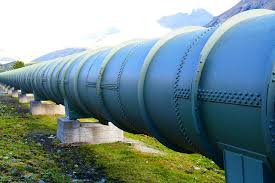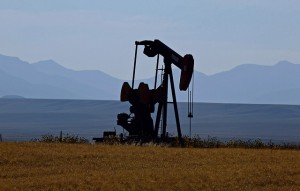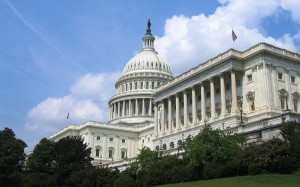94 item(s) were returned.
Many are familiar with peak oil theory — the idea that global oil production will hit a ceiling and then decline — yet the concept of peak oil demand, where demand will plateau before supply, appears to be replacing this controversial hypothesis. Amy Myers Jaffe, Executive Director of Energy and Sustainability at UC Davis, recently wrote in the Wall Street Journal that a combination of technical, economic, environmental and demographic shifts could lead to peak global oil demand in the next two decades. By contrast, the Energy Information Administration (EIA) projects that global oil demand will rise from 87 million barrels per… [more]
View InsightUnited States Senator, State of Alaska
Chairman, Senate Energy and Natural Resources Committee
Some of America’s oldest allies are heavily reliant on unappealing sources of oil and our nation’s resource abundance places us in a position to render vital assistance. The International Energy Agency estimates that in 2012 the United Kingdom depended on Russia for 12 percent of its crude oil imports, a relatively modest proportion when compared to the Netherlands (31 percent) and Poland (96 percent). All told, Russian oil accounts for approximately one-third of European Union imports. Meanwhile, Italy receives some 21 percent of its imported crude from Libya, and other key partners — India, Japan, and South Korea — bank… [more]
View InsightOn March 20th, following a lengthy public review process, Secretary of Interior Sally Jewell unveiled new federal regulations for hydraulic fracturing on federal lands. According to the Department of Interior, these new standards are designed to (1) improve safety, (2) protect groundwater by updating requirements for well-bore integrity, (3) ensure wastewater is disposed of properly and (4) require public disclosure by companies of chemicals. The regulations will go into effect on June 24th, 2015. The fracking boom put the U.S. on track to be a leading producer of oil and gas, yet most of the production has taken place on… [more]
View InsightOn February 24th, President Obama vetoed legislation that would have authorized construction of the Keystone XL Pipeline as it “conflicts with established executive branch procedures and cuts short thorough consideration of issues that could bear on our national interest.” It is still possible that President Obama will approve construction of the highly controversial pipeline. In fact, a number of outcomes for the executive review are still possible and a district court judge in York County, Nebraska, just granted local landowners a preliminary injunction against TransCanada’s use of eminent domain for the proposed pipeline in a move that further complicates the… [more]
View InsightOil prices have declined sharply over the last six months, with the U.S. benchmark closing below $50/barrel on Jan. 6th, for the first time since 2009. A number of factors have contributed to this fall in prices, including an increase in U.S. tight oil production and decreased global demand. Beyond the immediate financial benefits of lower fuel prices for U.S. consumers, the falling price of oil raises several policy questions. Impacts on financial markets and geopolitical tensions that could be exacerbated if the low price persists are only a few of the potential issues U.S. policymakers may find themselves dealing… [more]
View InsightOn December 3rd, 2014, OurEnergyPolicy.org hosted “Abundance or Scarcity? Re-examining U.S. Oil & Gas Policy,” a panel event at the Capitol Visitor Center in Washington, DC. The panel discussed how recent growth in domestic oil and gas production is transforming the U.S. energy sector and challenging the paradigm of energy scarcity that has underpinned federal policy for the last 40 years. Topics covered include policy issues related to exports, finance, climate change, infrastructure, natural gas as a transportation fuel and politically viable energy legislation. Find the full video below and the transcript here. Introduction: Bill Squadron, President, OurEnergyPolicy.org Opening remarks:… [more]
View InsightClarence Efroymson Professor of Economics
Butler University
As I explain in U.S. Energy Policy and the Pursuit of Failure, bipartisan compromise is possible and has led to policy change in the past. However, that change has almost always been bad for the country. Bipartisanship has given us ill-conceived and wasteful programs for synthetic fuels, breeder reactors, “super cars,” windmills, and ethanol. The problem runs much deeper than the current President or the balance of parties in Congress. For the past forty years, U.S. energy policy has been premised on false concepts of markets, government, technology, and history. The basis for this policy paradigm goes something like this: The… [more]
View InsightMember
U.S. House of Representatives
Along with my colleagues Reps. Tom Cole (R-OK) and Matt Salmon (R-AZ), I introduced the Fuel Choice for American Prosperity and Security Act (FCAPS, or H.R. 5107), a bill to promote fuel competition in our transportation sector. In particular, FCAPS aims to: Improve energy and national security by reducing the strategic importance of oil; Save consumers money at the pump by opening vehicles to fuel competition; Spur economic growth by allowing industry to capitalize on more of America’s natural resources; and Reduce the financial burden for automakers and consumers of meeting corporate average fuel economy (CAFE) regulations. Opening cars to… [more]
View InsightFreelance projects of interest
Retired
A National Energy Program (NEP) is proposed to eliminate the gap between U.S. oil consumption and production and significantly reduce green house gas emissions in a decade to place our nation on the road to a sustainable energy future. With domestic natural gas plentiful, eliminating the “oil gap” will achieve energy independence. The international Energy Agency forecasts this gap to be approximately seven million barrels and day (MBD) in 2025 [1]. Forecasts vary from 4-7 MBD depending on source used. Current forecasts are “not real world”; because they are based on continuation of business as usual conditions in an increasingly… [more]
View InsightCo-Founder
Fuel Freedom Foundation
The lack of alternative energy sources to fuel our vehicles and replace expensive oil, jeopardizes U.S. national security, forces Americans to pay more at the pump, and greatly represses our ability to reduce pollution and address climate change concerns. In my state of California, 74% of all emissions – including CO2, toxic pollutants, ozone forming emissions and more – come from petroleum. Oil accounts for 65% of California’s GHG emissions, compared to 33% from natural gas, and less than 2% from coal. Meanwhile, each year, the U.S. spends more than $600 billion to buy oil and oil products, which is… [more]
View Insight






